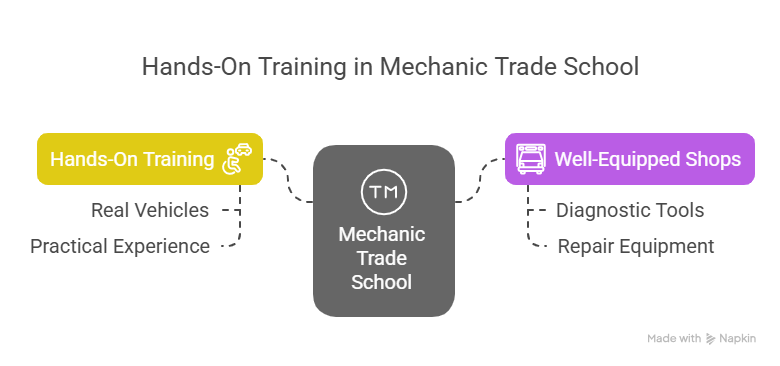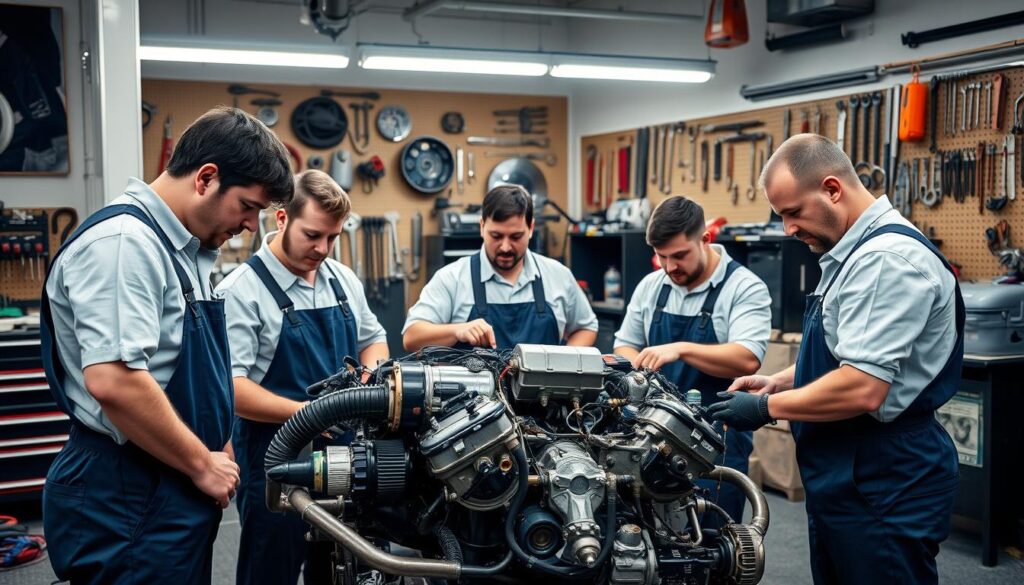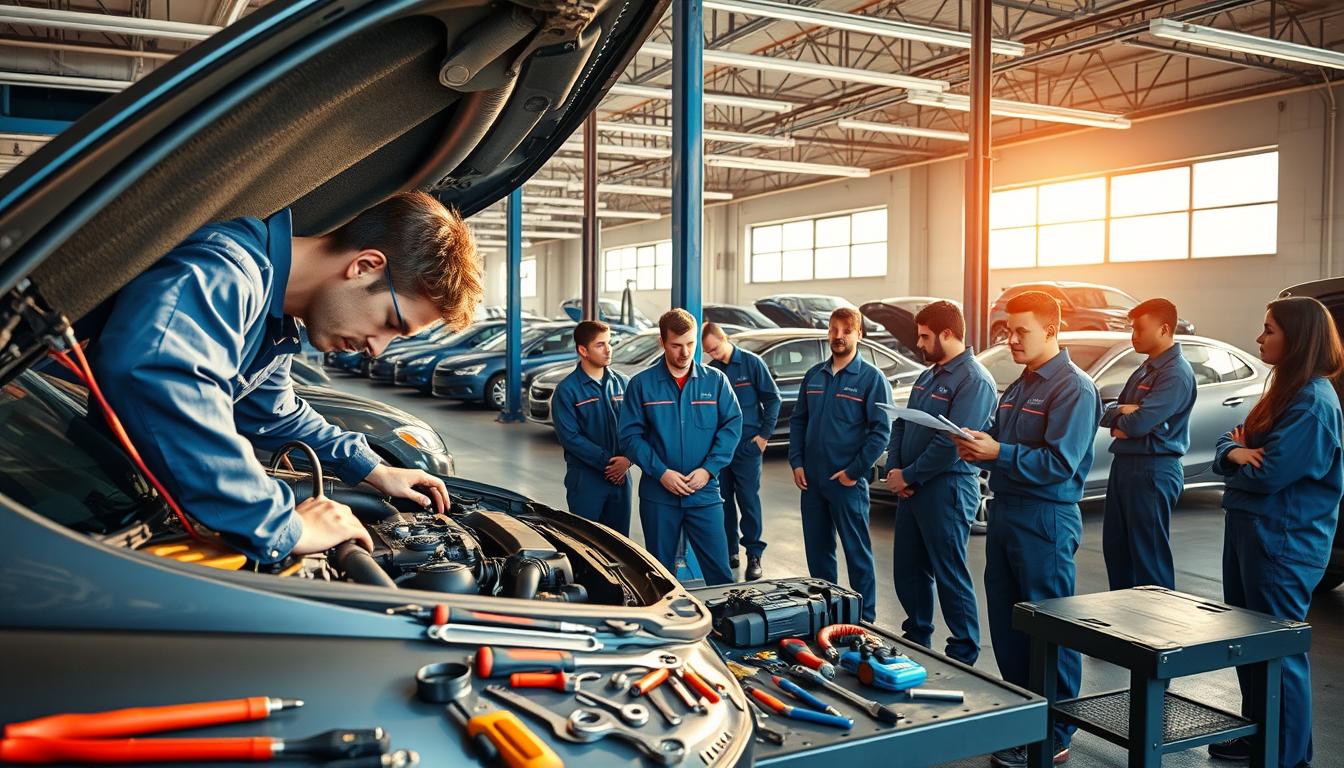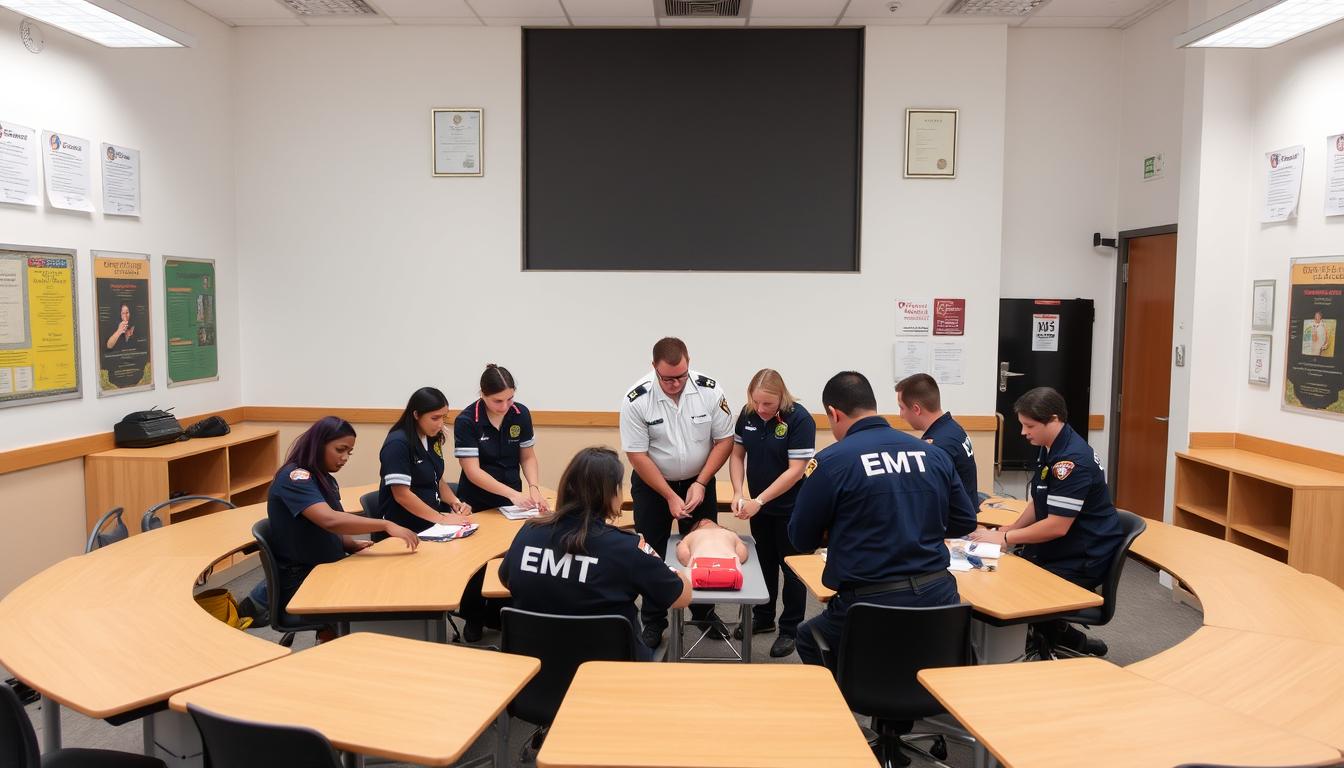Mechanic Trade School is often the first step to success for those embarking on a career in the automotive industry, which can be both exciting and challenging. With the right training, individuals can unlock numerous opportunities in this field.
Formal education in automotive technician training provides a solid foundation for a successful career. By enrolling in a reputable institution, aspiring technicians can gain hands-on experience and comprehensive knowledge.
Technical education for aspiring mechanics is crucial in today’s fast-paced automotive landscape. It not only equips students with the necessary skills but also prepares them for the latest industry developments.
By choosing the right technical education program, individuals can set themselves up for success and start a rewarding career in the automotive industry.
Why Choose a Mechanic Trade School for Your Career Path
For those looking to start a career in automotive repair, enrolling in a certified mechanic course at a skilled trades school can be a game-changer. The automotive industry is rapidly evolving, with advancements in technology leading to more complex vehicles.
The Growing Demand for Skilled Automotive Technicians
The demand for skilled automotive technicians is on the rise due to the increasing complexity of modern vehicles. As cars become more sophisticated, the need for technicians who can diagnose and repair advanced systems is growing. According to industry trends, this demand is expected to continue, providing a stable career path for those who complete a mechanic certification program.
Benefits of Specialized Technical Education
Specialized technical education at a mechanic trade school provides students with hands-on experience and in-depth knowledge of automotive systems. This type of education prepares students for the challenges of the automotive industry, making them more attractive to potential employers. By focusing on the skills that are in high demand, graduates can quickly find employment and start their careers.
What to Expect at Mechanic Trade School Programs
Mechanic trade schools offer a blend of theoretical knowledge and practical skills necessary for a thriving career in automotive repair. These programs are designed to prepare students for the demands of the automotive industry, providing a comprehensive education that includes both classroom instruction and hands-on training.
Curriculum and Course Structure
The curriculum at mechanic trade schools is structured to cover a wide range of topics, from basic engine repair to advanced diagnostics. Key subjects include brake systems, suspension, electrical systems, and engine performance. The course structure is designed to be comprehensive, ensuring that students gain a broad understanding of automotive systems.
Hands-On Training Opportunities

One of the significant advantages of attending a mechanic trade school is the opportunity for hands-on training. Students work on real vehicles in well-equipped shops, gaining practical experience that is invaluable in the automotive industry. This training is crucial for developing the skills needed to diagnose and repair complex problems.
Certification Programs and Specializations
Many mechanic trade schools offer certification programs and specializations, allowing students to stand out in the job market. Certifications from recognized organizations, such as the National Institute for Automotive Service Excellence (ASE), are highly regarded by employers. Specializations can range from diesel mechanics to high-performance vehicles, providing a pathway to advanced career opportunities.
- ASE Certification Programs
- Specialized training in diesel mechanics
- High-performance vehicle repair
From Classroom to Career: Job Opportunities After Graduation
Completing a program at a mechanic trade school is just the first step towards a rewarding career in the automotive sector. Graduates can look forward to a variety of job opportunities thanks to the comprehensive training they received.
Entry-Level Positions for New Graduates
New graduates can expect to find entry-level positions as automotive technicians, service advisors, or parts specialists. These roles provide hands-on experience and a foundation for future career advancement.
Career Advancement Pathways
With experience, automotive technicians can advance to senior technician roles, workshop managers, or even open their own repair shops. Specializing in areas like diesel mechanics or high-performance vehicles can further enhance career prospects.

Salary Expectations in the Automotive Industry
Salary expectations vary based on location, experience, and specialization. However, according to industry data, here is a general overview of salary ranges:
| Position | Entry-Level Salary | Experienced Salary |
|---|---|---|
| Automotive Technician | $35,000 | $60,000 |
| Service Advisor | $30,000 | $55,000 |
| Workshop Manager | $50,000 | $80,000 |
Graduates of a mechanical trades institute can anticipate a competitive salary as they begin their careers in the automotive industry.
Conclusion: Taking the First Step Toward Your Automotive Career
Attending a mechanic trade school is a pivotal step towards a rewarding career in the automotive industry. With technical education for mechanics, you gain the skills and knowledge required to succeed. Certified mechanic courses provide hands-on training, preparing you for entry-level positions and beyond.
By enrolling in a mechanic trade school, you’re investing in a future filled with opportunities. The automotive industry is constantly evolving, and skilled technicians are in high demand. Take the first step towards a fulfilling career by exploring certified mechanic courses today.
FAQ
What is the typical duration of a mechanic trade school program?
The duration of a mechanic trade school program can vary, but most programs are designed to be completed within a year or less, with some certificate programs taking as little as six months.
What kind of hands-on training can I expect in a mechanic trade school?
Mechanic trade schools provide extensive hands-on training, allowing students to work on real vehicles and gain practical experience in a controlled environment, preparing them for the demands of the job.
Are mechanic trade schools accredited, and why is accreditation important?
Many mechanic trade schools are accredited by recognized accrediting agencies, ensuring that the education provided meets industry standards. Accreditation is crucial as it affects the quality of education and the ability to secure certification and employment.
What certification programs are available through mechanic trade schools?
Mechanic trade schools often prepare students for industry-recognized certifications, such as those offered by the National Institute for Automotive Service Excellence (ASE). These certifications demonstrate a technician’s competence in specific areas of automotive repair.
Can I specialize in a particular area of automotive repair in a mechanic trade school?
Yes, many mechanic trade schools offer specializations or concentrations in areas like diesel mechanics, high-performance vehicles, or collision repair, allowing students to tailor their education to their career interests.
What are the job prospects like for graduates of mechanic trade schools?
Graduates of mechanic trade schools are in high demand, with opportunities available in dealerships, independent repair shops, and specialty service centers. The automotive industry’s need for skilled technicians continues to grow.
How do mechanic trade schools support job placement after graduation?
Many mechanic trade schools have job placement assistance programs, which may include resume building, interview preparation, and connections with local employers, to help graduates secure employment.
What is the cost of attending a mechanic trade school, and are there financial aid options available?
The cost of mechanic trade school varies by institution and program. Many schools offer financial aid, scholarships, and payment plans to help make the education more affordable for students.




